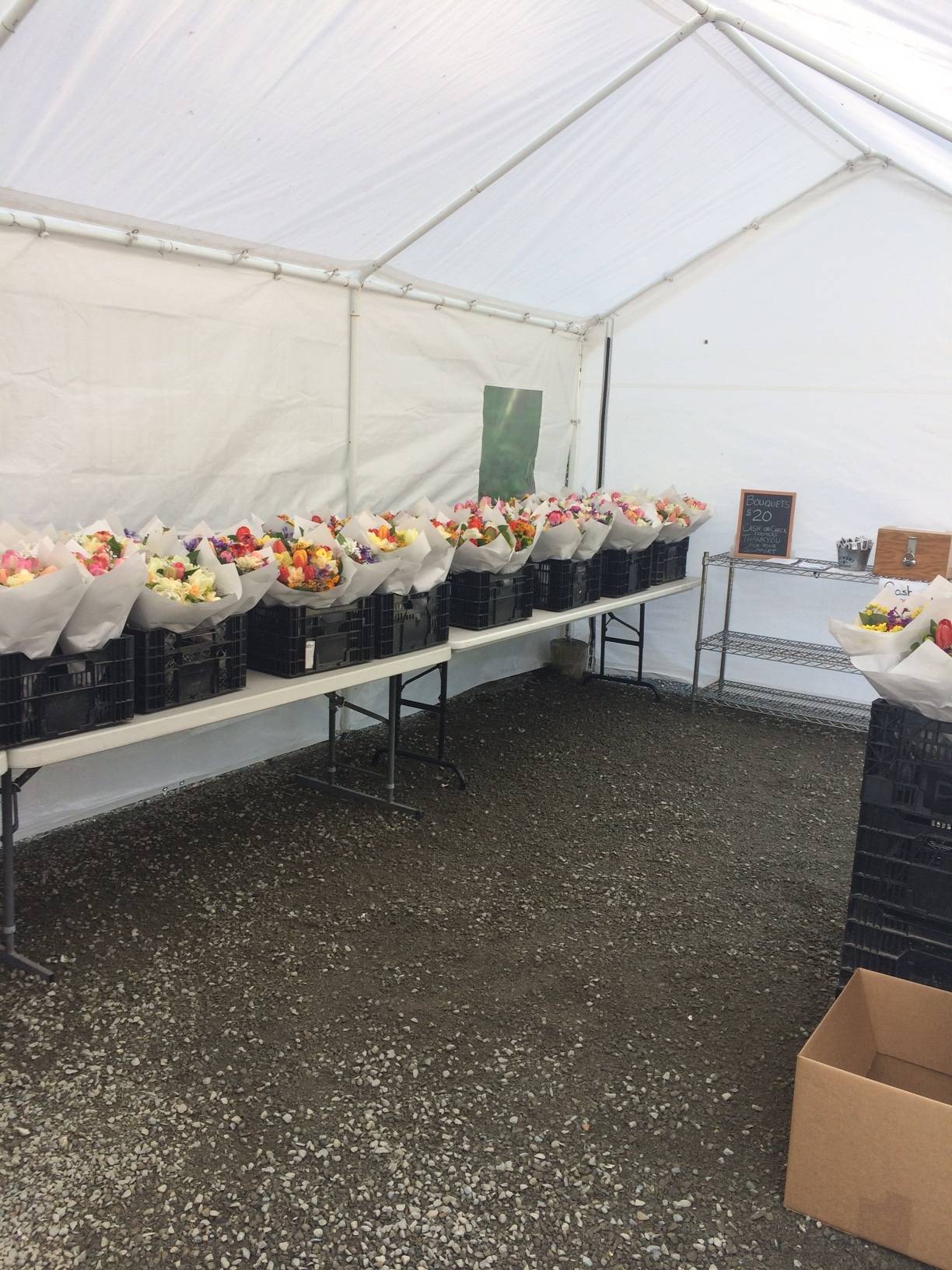Flower farmers in the Snoqualmie Valley are finding ways to sell their bouquets as their usual vending locations remain shuttered.
Many farmers in the valley relied on Pike Place Market in Seattle. Restrictions were put in place at the iconic market to help stop the spread of the COVID-19 virus. It left some businesses deemed essential to remain open and operating. Other businesses, like flower stands and vendors, were closed.
Farms in the valley have been banding together, said Aimee Sherrill, owner of the Dahlia Barn near North Bend.
“Once this COVID-19 hit, and the Pike Place Market closed down, they lost their outlet for selling flowers. So we’ve been working with them selling their bouquets in our self-serve flower stand,” she said.
Fresh flowers are delivered to the barn every morning. Bouquets cost $20 and are bought at a self-serve stand.
So far, it’s been a successful system. On Mother’s Day weekend alone, they sold more than 400 bouquets.
“It’s drawn some attention for us, and it’s really helping the Pike Place Market farmers,” Sherrill said.
All the flowers at the barn are grown in the Snoqualmie Valley, from Fall City to Monroe. Sherrill said she’s been working primarily with MV Floral, which is based in Monroe.
Farmers markets are an important source of sales for flower farmers. Farmers often make the bulk of their money from farmers markets and event sales. Since events have been cancelled and farmers markets curtailed, many farmers have faced a harsh business environment, King County’s Leigh Newman-Bell said in a blog post.
Flower farmers use revenue to buy seeds and pay for other expenses through the season.
Many flower farmers in the valley and across Western Washington are also Hmong farmers — first and second generation immigrants from Laos. The Seattle Times wrote that since 1975, some 200,000 Hmong refugees fled Laos following the Vietnam War. As of 2010, about 2,000 live in Washington state and around 80 Hmong flower farms are in Western Washington.
From April to October, Pike Place Market hosts up to 40 small flower farmers every day. The market’s website provides a list of producers, and ways to help support them.
Farm stands are providing an alternative to selling in farmers markets for those in the valley.
“We find that it’s been successful, and we find that we’re going to continue to have the self-serve stand selling the flowers,” Sherrill said.
The season starts in April with tulips and moves to peonies before turning to irises, lilies and other flower varieties. Mid-July sees dahlias come into season.
July is also prime-time for lavender. Ivy Cheung grows the flowers on her small farm outside of Fall City.
Snowfalls Lavender Farm is a 1-acre farm and a one-woman show.
“It’s not easy to be a flower farmer,” Cheung said.
She grows five varieties of lavenders and sells most of her produce at a farm stand and from people visiting the farm.
Cheung counts herself lucky. She’s diversified in recent years and sells lotion, lavender oil and other products.
Other flower farmers called for this story said they were busy preparing bouquets. Farmers markets have been slowly reopening since May. It’s likely more will open back up as King County applies to move into Phase 2.



